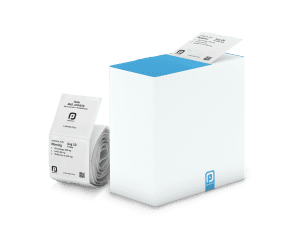[vc_row][vc_column][vc_separator][vc_column_text]Through history pandemics have put health care systems under intense strain. More often than not, it is not until a mass emergency materializes that the cracks and shortcomings of this system are widely recognized. That being said, necessity being the mother of invention, also creates new paths to foster innovation. Start-Up venture PocketPills, Canada’s first ever digital pharmacy, is looking to alleviate some of the pressure by using technology to optimize the pharmaceutical industry.
Harj Samra and his two co-founders, Abhinav Gupta and Raj Gulia have developed a medication management system that illuminates errors costing Canadians seven to nine billion dollars from medical non-adherence. The app places a pharmacy in the palm of your hands, giving patients access to a pharmacist and their prescriptions at any time.
“There has never been an app solution out there where someone is able to access a full service pharmacy. We have an easy to use online platform where members can access the pharmacy whenever they want, wherever they are. It then delivers their medication directly to them.” Said Samra
PocketPills takes medication management from being the responsibility of the patient, to that of their virtual system. Drug dosage sorting systems like PocketPacks separates complicated medication regimens into daily dosage packs so a patient doesn’t have to remember what to take and when to take it. 

Meeting at the intersection of patient care and technology, PocketPills, while run like a classic pharmacy, implements modern technology to increase fulfillment capacity to ensure every Canadian regardless of location or physical limitations has access to the health care they need.
“The question has always been, how do we provide better service to more Canadians by leveraging technology. The benefit of having technologists and software engineers be a part of our process is that they’re able to come up with different ways to accomplish our patient optimization goals,” says Samra, “At our core we have our pharmacists, but at this point in time, we have more software engineers than we do have pharmacists.”
At a time when health care systems have been pushed to full capacity, Samra says, there is no better time for Canada’s health industry to become more efficient in reaching the masses. In the latest addition to our Start-Up Spotlight series Bay Street Bull spoke with Co-founder, Harj Samra, on the opportunities that lay ahead and how PocketPills is opening the door for telemedicine in Canada when it is needed most. [/vc_column_text][/vc_column][/vc_row][vc_row][vc_column][vc_text_separator title=”Q & A” color=”turquoise”][vc_column_text]What market opportunities did you and you co-founders see in creating a digital pharmacy?
The existing pharmacies out there don’t have the software that is needed for servicing the digital patient. Mail order pharmacies have been around for the last 20 years, and they haven’t really become a real popular thing in the industry. One of the reasons is how you interact with a mail order pharmacy. You have to call in, you have to have your medications dispensed and then delivered….So what we’ve done is develop the software to be able to make sure that a pharmacy can be in the palm of people’s hands. They’re able to refill, renew, chat with the pharmacist, everything that you haven’t been able to do with a mail order business.
As for market opportunities, retail pharmacy is a $25B market in Canada. 50 per cent of drug expenses are paid by private insurances and it’s at the top of their minds to reduce insurance cost. With PocketPills, insurance companies and benefit advisors now have an opportunity to reduce drug insurance premiums.
Digital pharmacies haven’t previously existed in Canada. Why do you think that is and what complications does PocketPills face in applying this virtual method to Canada’s health care system?
What we’ve seen with telemedicine in general, from physician visits to pharmacy is that it has been slow to move forward. One of the things that we had to conquer, in Canada, is that there was no blueprint. There is no pharmacy software for the digital patient. So one we had to create it. Canada is unique in that we have a universal healthcare system but it doesn’t apply to medications. Medication coverage is regulated, at a provincial level. So every province has to have its own software to adhere with the government’s regulations.
So it was, it was a task that we knew was going to be difficult to start because nobody has entered the space. But it’s been rewarding in itself because when we do add a province, we know that we’re making unprecedented steps forward for digital pharmacy.[/vc_column_text][/vc_column][/vc_row][vc_row][vc_column][vc_single_image image=”17166″ img_size=”full”][vc_column_text]What advice would you give to another entrepreneur who, like yourself and your co-founders are facing the difficulties of re-inventing a tried and true system?
If you find a unique opportunity like we did with PocketPills being that, although they’ve taken off in the U S and Australia digital pharmacy didn’t exist in Canada, starting where there’s no blueprint can be challenging. But it’s also exciting, looking at a challenge and coming up with a solution is a job every entrepreneur has. So as you come to a problem, making sure that you approach it with a solution mentality. Test that solution and go forward. That’s the way that we’ve approached PocketPills from starting off in BC, then moving to Alberta, then Ontario, then Manitoba, Saskatchewan, now Maritimes. And now sooner or later we’ll be entering Quebec. It’s the same kind of formula. It’s making sure that you stick to your fundamental principles. [/vc_column_text][/vc_column][/vc_row][vc_row][vc_column][vc_column_text]The current pandemic has taken health care systems by storm. How has PocketPills had to adapt to service different demands and how can digital pharmacy alleviate some of the strain on the Canadian healthcare system?
We’ve had a significant bump in the use of our platform since COVID-19. We all have to do our part as healthcare professionals, having this platform has been helpful for people to ask questions. Not only are people trying to practise social distancing but for example if someone has an autoimmune disease it’s dangerous for them to put themselves out there right now. So we have seen a significant increase in the amount of inquiries we get from the public who have medical concerns and want a reputable source.
With COVID-19, this situation might be the push that has been needed in Canada to adopt telemedicine. The ability to share information with the permission of the patient, will result in patients having more seamless healthcare. Roughly 50 per cent of the interactions can happen through a telemedicine visit. And telemedicine is not just, you know, seeing your physician online, but also mental health services and pharmacists and pharmacies. Having the option to query a patient beforehand to see if virtual visitation is sufficient would help alleviate some of the pressure on healthcare systems and physicians. [/vc_column_text][vc_custom_heading text=”“The benefit of having technologists and software engineers be a part of our process is that they’re able to come up with different ways to accomplish our patient optimization goals“” font_container=”tag:h2|font_size:18|text_align:center”][/vc_column][/vc_row][vc_row][vc_column][vc_single_image image=”17165″ img_size=”full”][vc_column_text]In what ways does the digital model PocketPills revolutionize access to healthcare?
Whether it’s telemedicine, virtual medicine or in case of PocketPills with our digital pharmacy, we try to pride ourselves being available to everyone and anyone. Underserved areas like within the indigenous population and communities, they’ve been lacking access for years. These types of solutions, if they’re adopted by governments, provide access for these harder hit areas when it comes to medication accessibility. I think pushing and showing that there is a need for these types of solutions is important and can create change.
One of the attractive features of digital pharmaceuticals is that it can reduce cost and increase dispensing capacity, how has PocketPills worked to optimize this medical process financially and by scale?
If you think about how a patient interacts with their pharmacy, you go to a doctor, get your prescription, drop off that prescription, shop around for 45 minutes, then you’ll come back and pick it up. What we found is that all that interaction can be automated and available on your app.
We have leveraged automation so that everything can be serviced from one central warehouse. After 400 to 500 prescriptions, at a retail pharmacy you physically just can’t do anymore because you don’t have that workflow or that automation. So by putting that all into software, it’s the only way to scale.
Now, specifically when it comes to the cost, we have free shipping and a $7 dispensing fee in majority of cases, this a more cost effective solution for consumers. Employers, especially now, are looking to cut costs. We’ve had a lot of employers choose PocketPills as a digital pharmacy solution that allows them to continue providing medical services to employees by lowering drug insurance premiums [/vc_column_text][/vc_column][/vc_row]












